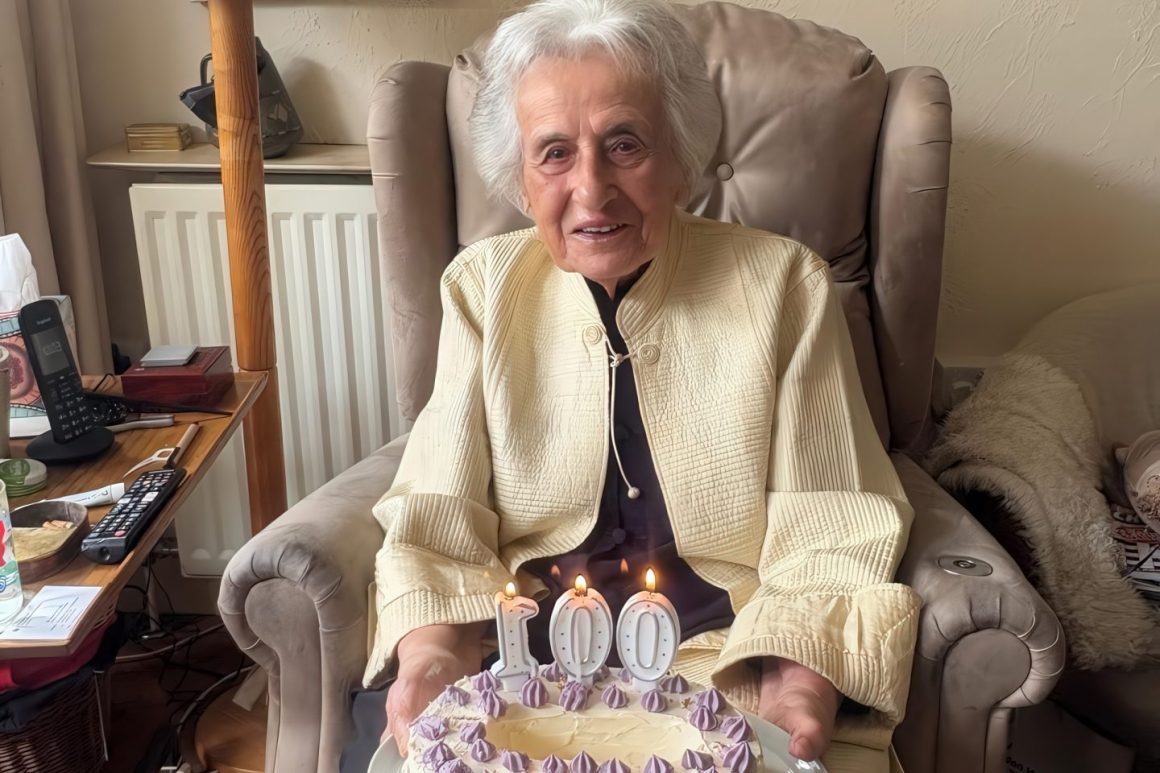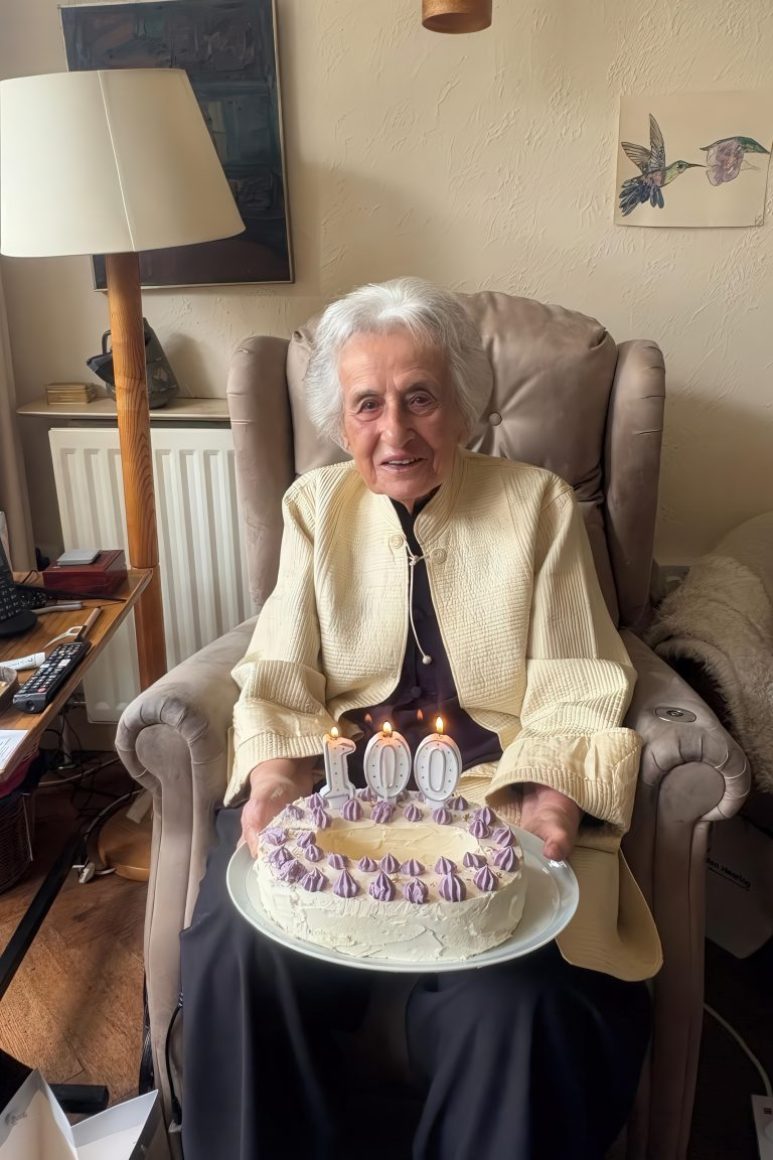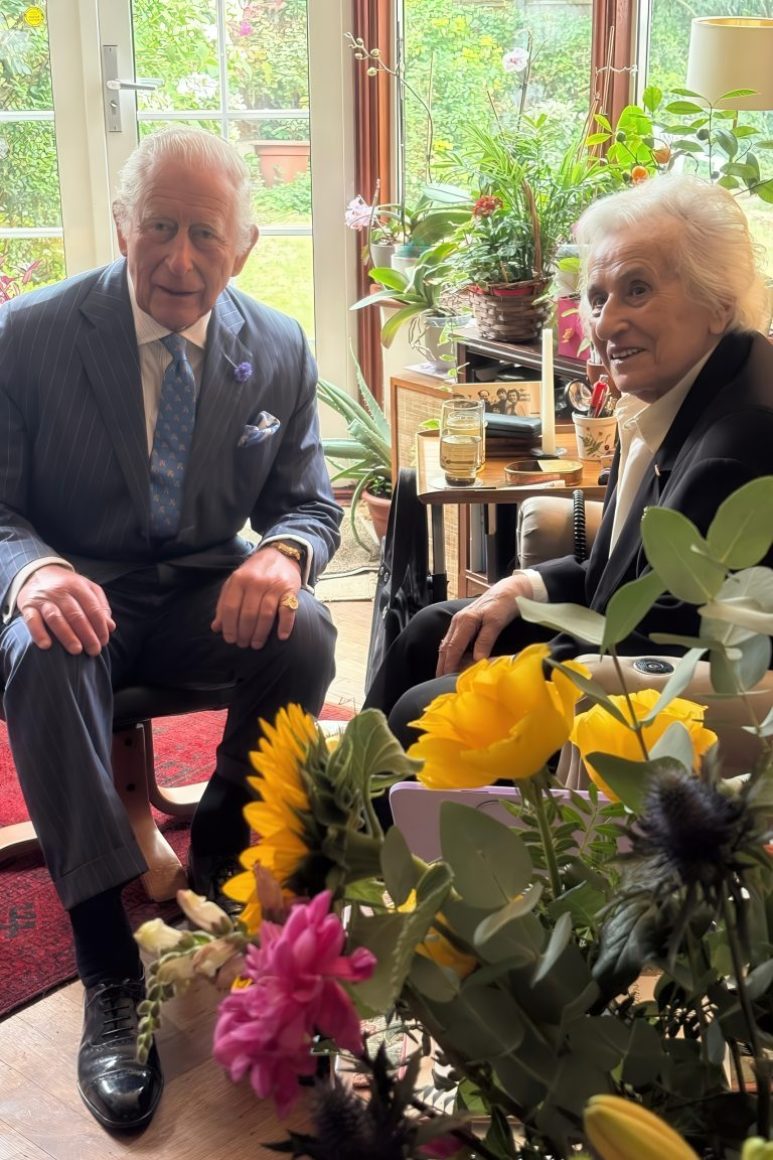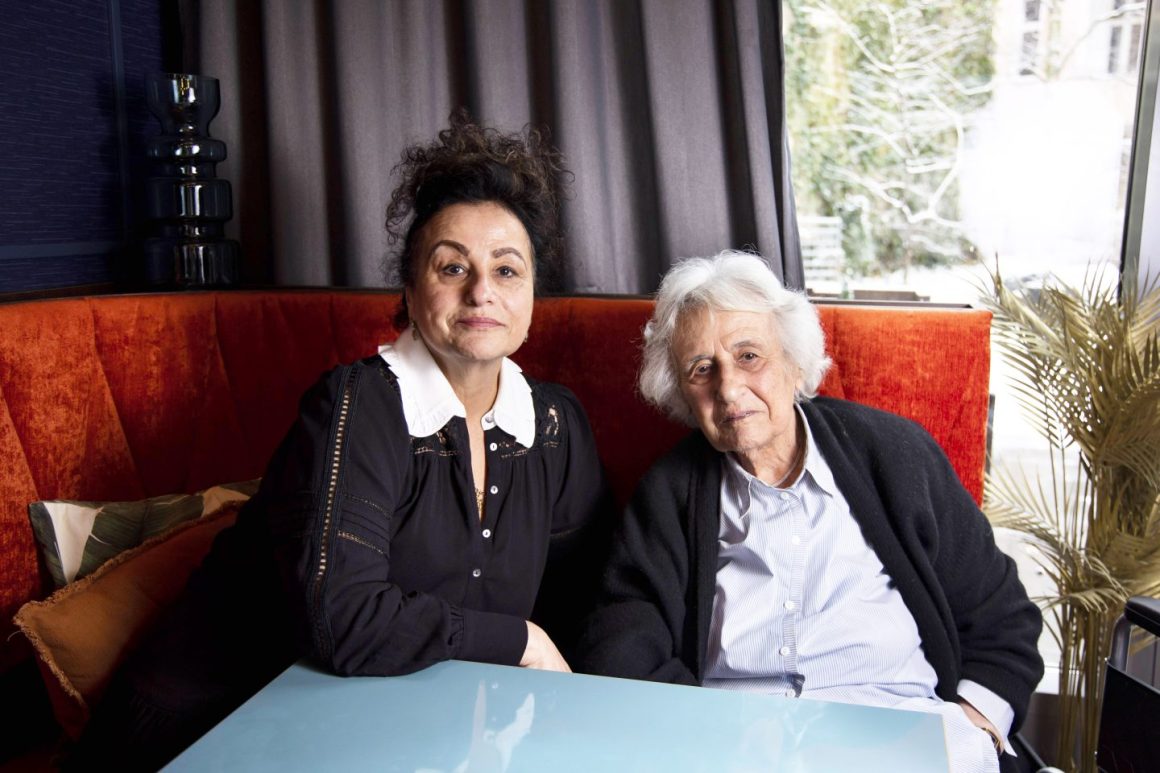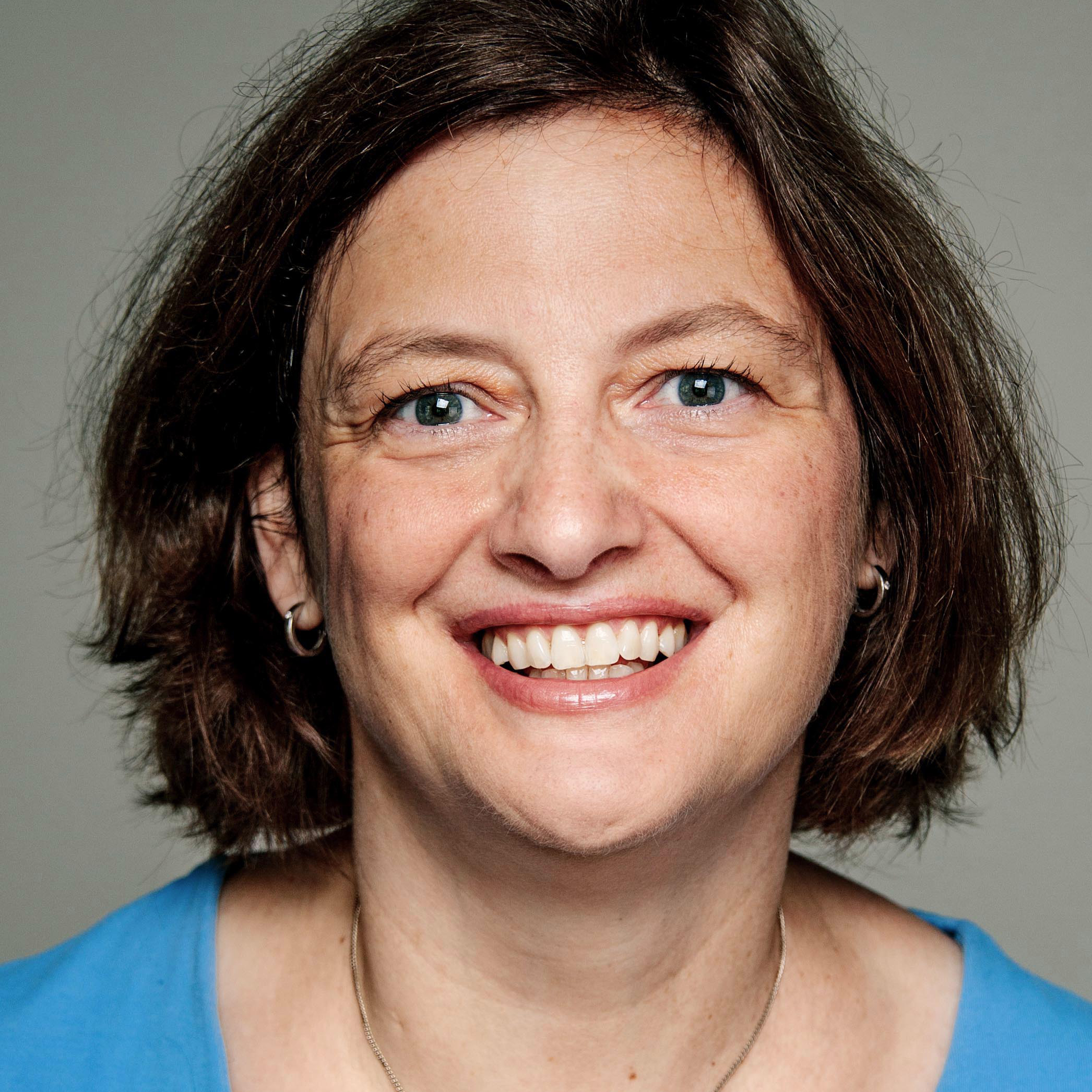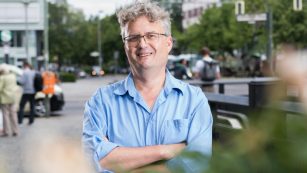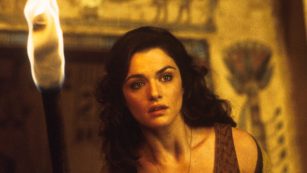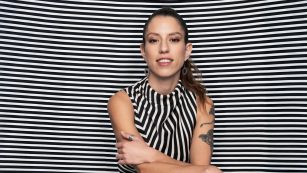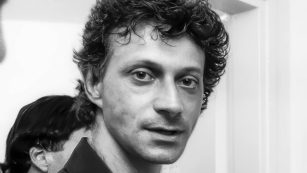Maya Lasker-Wallfisch, your mother Anita Lasker-Wallfisch, who survived the German concentration camp Auschwitz as a cellist in the orchestra, is turning 100 today (July 17th). How is she feeling?
Very tired. She is not very happy at the moment. It´s a difficult time. And
it´s pretty exhausting.
Because of personal reasons or because of the political situation worldwide?
All of it.
Today there is big concert in honor of your mother, a professional musician and educator, in Wigmore Hall in London – together with her grandchildren, the musicians Simon und Benjamin Wallfisch. Is she looking forward to the event? You are the speaker?
Yes, that´s right. I hope that when the events arrive, she will, despite herself, be able to enjoy it. I am not sure if this concert is for my mum. It´s for the people that admire her. It´s for the public possibly the last opportunity to celebrate her in person. It´s almost like a living memorial sort of thing. My expectations are that we survive it, that she survives it and maybe enjoys some of it. The concert is sold out because people are so interested in her, but you know, she´s a very reluctant hero. Very reluctant. Another thing I can tell you: The king of England has visited her.
The king is going to attend the concert?
No, it was a private visit from the King. She´s also very fond of Stephen Fry. He is a great friend. I am delighted to have his support on the day! So
I´ve got her two of her favorite people. And then I had to buy on eBay a silver teapot and tea set. I could not possibly serve the king tea from inelegant cups.
You said recently that Hitler wanted to kill your mother . and now she has eleven descendants, hildren, grandchildren and great grandchildren. Does this feel like a victory for you and your family?
Yes, I would say to her: Despite everything my mother has triumphed. And she has more than survived. Although I know she doesn´t necessarily see it like that. She ist still the Matriarch of a growing family, and this is also a miracle. Even though she doesn´t really believe it, because of the state of the world now, she has had a massive impact on a lot of people. This hasnt cured antisemitism, of course, but she has talked to so many young people about her story. And I hope, she will always be remembered for that?
She and all of your family. Life hasn´t been easy also for you as a daughter of a survivor. So that is something you are carrying with you also these days?
Absolutely. And since my mother had a very serious accident six months, our lives, hers obviously mainly, have completely changed. She has full time care now. So this independent person of 99 and half a year - she´s gone.
Is this hard to accept for her?
Very. For all of us.
Do memories from from the dark times in her life come back to her now?
I think there are different memories. Also memories of her early life and of her parents, who were murdered in the Holocaust. I´m aware that early trauma re-emerged in this last six months.
What is the impact of the re-emerging trauma on you?
It´s very sad. And it makes me think is nobody gets away with it. You know, even though my mother has lived a life of coping and doing and tried to dispense with any kind of emotional life, it catches up. And in this last part of life and with her sudden fragility, she is reminded of other times of great vulnerability.
Your mother was born in Breslau and emigrated to England after the war. You went back to Berlin, got German citizenship and are still work as a psychoanalyst.
Of course. But what I am wanting to be doing is using my expertise to reach more people, young people particularly, because this is what is necessary. I should be in a school every week. And I am not. Even with my name, even with the books I wrote and the film »Der Schatten des Kommandanten« about our familiy and the son and grandson of Rudolf Höss, the commander of Auschwitz. it doesn´t seem to be enough. Maybe it´s because Germany doesn´t really want to hear it. I would like to be wrong.
Do you think hat students or teachers want to hear stories »first hand« from survivors, not from their children?
This is a huge worry because my mother is the last. I do have very real worries about the absence of engagement in the second generation, and I think there is a kind of absolute wish for us all to disappear. I have a huge responsibility and it is my mother´s wish that I continue her legacy. It is not so simple if I am not asked to.
Do you fear that with the rise of a right wing party in Germany, the willingness to talk about the past and to learn from the past will disappear?
I am really worried. And I don´t actually emphasize it as Holocaust education. It´s about hate education, it is not it is not a Jewish problem.
It´s a human problem. The Jews have been the victims and continue to be, but so are many other people.
In Germany there is a popular slogan these days saying »›Never again‹ is now«. What does this mean to you?
It´s a bit esoteric, isn´t it? »›Never again‹ is now.« Well, here we are again.
It‘s used in relation to October 7th and the rise of antisemitism.
There is so much misunderstanding about what happened that terrible day and the consequences that have happened since. A huge amount of people have completely lost track of this. So Trump does his bit. Now they´ve gone back into Gaza and killing people again. It´s completely mad. I feel quite hopeless about the current situation. If there´s anything that can be done, just speak out. I think we have to.
What does your mother think about it?
She´s desperate about it and appalled. It´s terrible that in her lifetime, she sees this again. I have not asked her, and I won´t, how she feels about the fact that her daughter is now living in a country where antisemitism is on the rise by more than 70 percent and we see one antisemitic incident an hour. It seems we are back in the 1930s.
Do you really think that we are back in the 1930s?
It looks different. It smells different. But this is what happened. Slowly, insidiously, it crept in and it became normal.
We don´t have discrimination via the state or anti-Jewish laws in Germany today.
No. Not yet. But we have to pay attention to what is happening on a global level. Clearly people do not learn from history. I thing we´re in a very,serious situation. How can we assume that we´re not back in real danger because we are in danger? Synagogues wouldn´t be guarded. Kindergartens wouldn‘t be guarded. And you would be able to wear a yarmulke without worrying or a mocking of it. You can´t. So if that isn´t the same, I don´t know what is. Nobody wants to be identified as a Jew in you know sort of generally. I´m so exhausted by it all but I must persist. I really feel I´d rather someone take a shot at me doing something useful than than keep »shtum« and hide. I just won´t do that.
Your first book was »Briefe nach Breslau« (Letters to Breslau), and the second »Ich schreib euch aus Berlin« (I write to you from Berlin). Now you haven written a play and are working on a third book. What will be the title?
»Life after«. It´s actually a book about the last year and my mother´s life. A story about love and loss, mothers and daughter, families and things that happen in life. When the celebrations will be over, I will have time to continue writing. It´s the kind of book that I feel people will want to read. Because everyone goes through something like this. It´s just everybody‘s stories is a bit different. And the fact that people only think of my mother as strong and survivor.
You had great conflicts with your mother, because she wasn‘t able to address your your needs as a child. You overcame many difficulties, including drug addiction. But is it ever possible to solve the conflicts in the relationship with you mother?
No. Nobody escapes. You know, the idea my mother created an idea of who of herself is, you know, she could do anything. She did it for a long, long, long time. And then suddenly it was over. So I want to tell the story of the last part of my mom´s life. It´s not all lovely. It isn´t. But life isn´t. And now, because she has all these caretakers, I feel like I can´t even get to her. It is very challenging.
What is your wish for your mom´s 100th birthday?
What I would wish my mum now is just some pleasure in when she looks around her at what she´s created. And for myself, I would like my mother´s approval to shine upon me.
I think that´s what everybody wants.
Of course. It´s the most normal thing in the world. But you know, in this household …
I understand you and youre mother have the same dark and grim sense of humor.
Yes, we have that in common. And with me, is getting darker and darker. I had visions because my mother keeps saying she doesn´t want to be here. So I said, look, please stay alive till July 18th.

